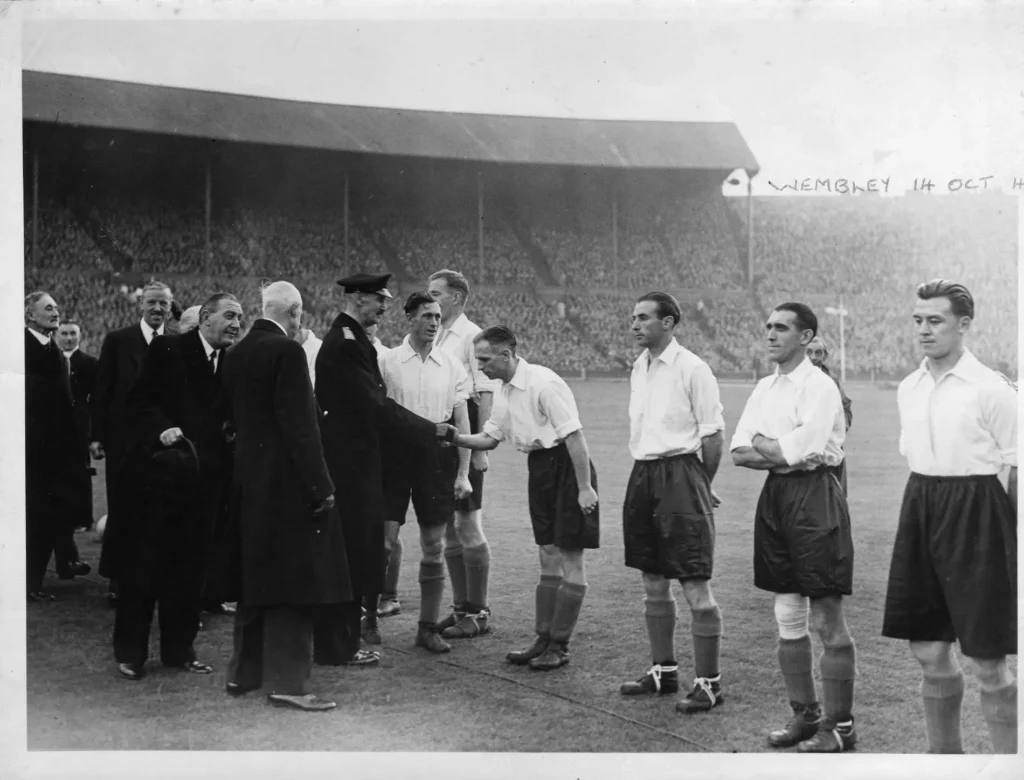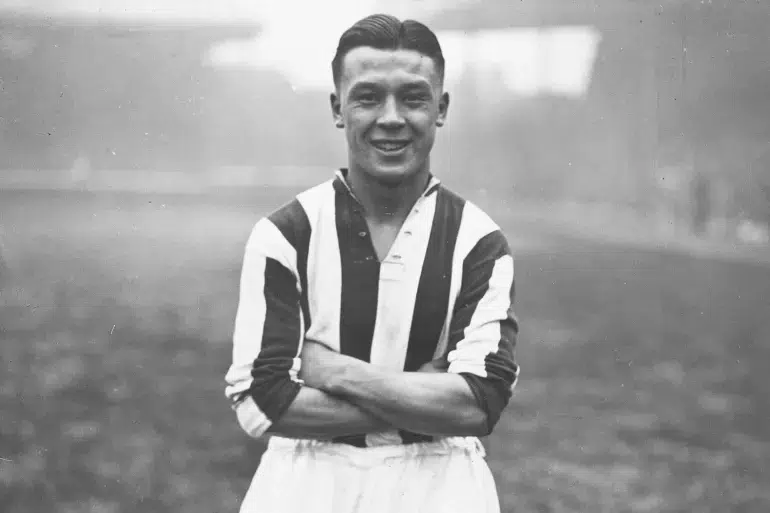It has been a long time coming. More than 80 years after he first took the field for his country, Frank Soo, the first player of Asian descent to represent England, will be formally recognised. In a ceremony at Wembley Stadium on October 9, 2025, The FA will award a posthumous honorary cap to his family and the Frank Soo Foundation.
Soo’s contribution has been forgotten by many. He played nine matches for England between 1942 and 1945. These were wartime games, and because they are not officially recognised by FIFA, his legacy was not fully acknowledged. He did not receive a formal cap. This new honorary cap rights a long-standing omission and gives him the respect he always deserved. It is a moment of reflection on a career that was both brilliant and, for too long, overlooked.

A Pioneering Career Overlooked
Born in Derbyshire to a Chinese father and an English mother, Soo’s early life was spent in Liverpool. On the pitch, he was a gifted player. His career took him to Stoke City, where he was captain, before he moved on to Leicester City and Luton Town. After his playing days were over, he continued his work in football, even coaching the Norwegian national team at the 1952 Olympics in Helsinki.
His story is one of skill and perseverance. But it is also a story of a pioneer whose place in the game’s history has been understated. Alan Lau of the Frank Soo Foundation put it simply. “Frank Soo was one of the most talented players of his generation, whose story has often been overlooked. It is really important to honour the contribution of all players who have blazed a trail in the national game.” This cap is a way to finally do that, to make sure his place in history is clear.
Read More: INTERVIEW: Author Susan Gardiner discusses her book on British Chinese footballer Frank Soo
The presentation of the cap will be a special moment, especially as it comes during ESEA Heritage Month and falls exactly 80 years after his final game for England, which was also against Wales. Dal Darroch, the FA’s Head of Diversity & Inclusion Strategic Programmes, noted the significance.
“Frank Soo’s immense contribution to English football deserves lasting recognition. A player of great skill on the pitch, and of determination and resilience off it, his story lives on today. It will be a special moment when this posthumous honorary cap is presented to his family and the Frank Soo Foundation at Wembley Stadium in October. His pioneering legacy continues to inspire young players now, and will continue to do so for generations to come.”
His legacy is now being recognised by more than just the FA. The National Football Museum has also inducted Frank Soo into its Hall of Fame. Tim Desmond, the museum’s CEO, said the honour celebrates “not only his achievements on the pitch but also his role as a pioneer for being England’s first-ever player of Asian descent.” His career was not without challenges, and he faced prejudice due to his heritage. Desmond added that the museum is proud to be “representative of football in all its diversity and Frank must have overcome a lot of social barriers to achieve at the highest level in the game.”
Read More: FEATURE: Frank Soo: the unknown Chinese footballer who represented England
Part of the reason for his disappearance from the public eye may have been his decades spent coaching abroad, but as he told a reporter in 1975, he believed the real reason he wasn’t picked for England more often was “because of my Chinese blood.”
This prejudice didn’t stop him from becoming a celebrated figure during his time. A local reporter wrote in 1937, “His right to international honours has been overlooked in the past in such a way that we are tired of hoping for the best for him.” Even fellow players like Sammy Chung, who followed in his footsteps, saw him as a role model, yet Soo’s name was often omitted from the memoirs of his contemporaries, including his teammate Sir Stanley Matthews.
The recognition is more than a historical footnote. The Frank Soo Foundation is actively working to bring more people from East and South East Asian communities into football, and they recently held the national final of the Frank Soo Champions Cup. The work of the foundation shows that Soo’s influence is not a relic of the past; it is a living part of the game today. He paved the way for others, and this new honour only strengthens his place as a true trailblazer.
As Alan Lau said, “We and the Soo family are so proud of this achievement and cannot wait to see the impact this recognition will have on East and South East Asian communities and for English football.”
View this post on Instagram










